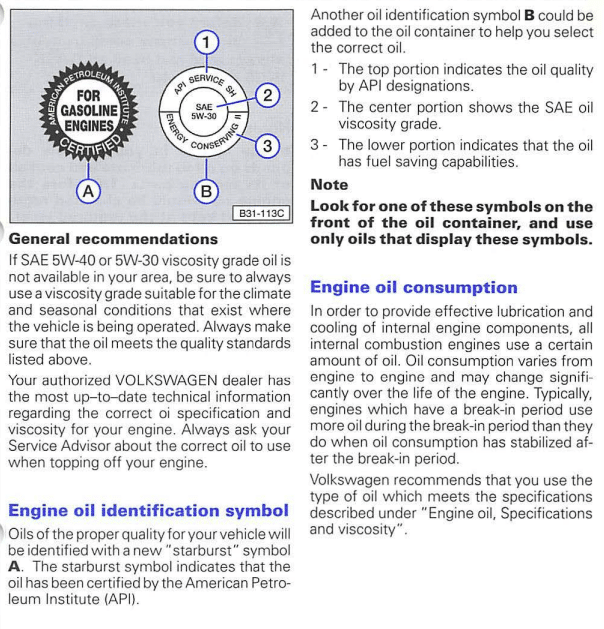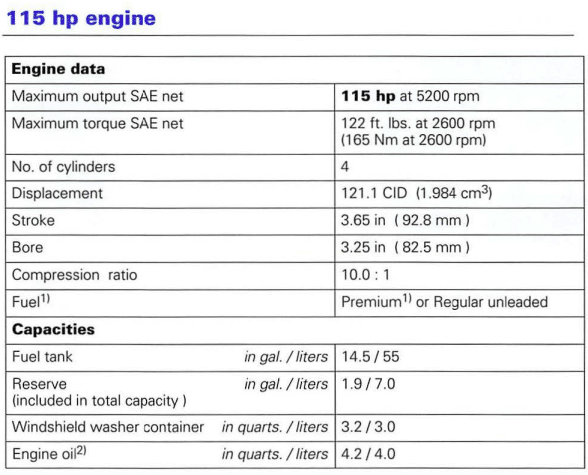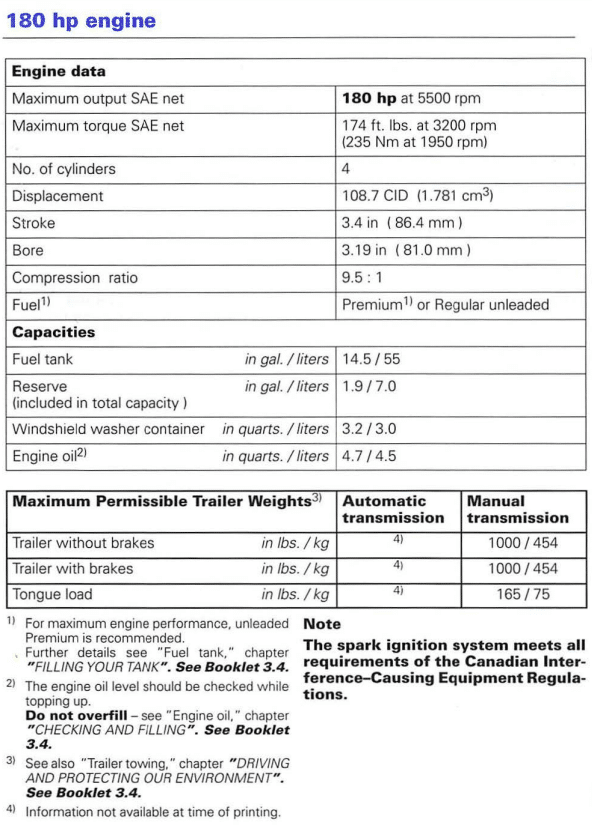The 2003 Volkswagen Jetta is a popular compact sedan that has earned a reputation for its reliability, fuel efficiency, and comfortable driving experience. Available with a variety of engine options, including gasoline and diesel, the Jetta caters to a wide range of drivers with diverse needs. As a Jetta owner, maintaining your vehicle’s engine is crucial for ensuring its longevity and performance.
Choosing the correct oil type for your 2003 Volkswagen Jetta is crucial to ensure the engine performs at its best. The appropriate oil not only lubricates the engine’s moving parts but also plays a vital role in cooling, cleaning, and sealing the engine components. If you use the wrong oil type or poor-quality oil, it could result in increased wear and tear, reduced fuel efficiency, and even engine damage, which could lead to expensive repairs.
In this article, you will find a thorough guide on the ideal engine oil types for your 2003 Volkswagen Jetta, the factors that can affect oil consumption, and maintenance tips to keep your vehicle running at its best. By adhering to these suggestions, you can prolong your Jetta’s life, minimize the chances of engine problems, and have a pleasant and efficient driving experience.
What Kind Of Oil Does A 2003 VW Jetta Take?
Selecting the appropriate oil viscosity grade for your 2003 Volkswagen Jetta is crucial for maintaining optimal engine performance. Viscosity refers to the oil’s resistance to flow, and it changes with temperature. The two recommended oil viscosity grades for the 2003 Volkswagen Jetta are:
- SAE 5W-40: This oil viscosity grade is the factory-filled oil and is suitable for all temperature ranges under normal driving conditions. The 5W-40 oil provides excellent low-temperature performance and protects the engine at high temperatures.
- SAE 5W-30 (alternative): In case SAE 5W-40 is not available, you can use SAE 5W-30 as an alternative. This oil viscosity grade provides similar performance across temperature ranges and can be used for normal driving conditions.

When choosing engine oil for your 2003 Volkswagen Jetta, it’s essential to ensure that the oil meets the required specifications for your specific engine type. The oil container should display the following designations:
For gasoline engines:
- VW 502 00 or VW500 00 or VW501 01
- ACEA A2 or ACEA A3
- API Service SJ
For diesel engines:
- VW 505 01
Using high-quality synthetic-based oil in your 2003 Volkswagen Jetta offers several advantages over conventional oil. Synthetic oil provides better protection for your engine, enhances performance, and extends the life of your vehicle. Some benefits of synthetic oil include:
- Improved lubrication: Synthetic oil offers superior lubrication, reducing friction and wear on engine components.
- Enhanced temperature resistance: Synthetic oil maintains its viscosity in extreme temperatures, providing better protection during cold starts and high-temperature operation.
- Reduced oil consumption: Synthetic oil is less prone to evaporation, resulting in lower oil consumption and fewer top-offs.
- Longer oil change intervals: High-quality synthetic oil generally lasts longer between oil changes, saving you time and money.
By choosing the right oil viscosity grade and ensuring it meets the required specifications for your 2003 Volkswagen Jetta, you can maintain optimal engine performance and extend your vehicle’s lifespan.
2003 Volkswagen Jetta Engine Options and Oil Capacities
100 hp 1.9L Diesel engine
The 2003 Volkswagen Jetta 1.9L diesel engine is known for its fuel efficiency and durability. This turbocharged direct-injection (TDI) engine produces 100 horsepower and offers excellent torque for a responsive driving experience.
180 hp 1.8L engine
The 1.8L turbocharged gasoline engine provides a balanced combination of power and efficiency. Generating 180 horsepower, this engine offers impressive acceleration and smooth performance for drivers who prioritize power and responsiveness.
115 hp 2.0L engine
The 2.0L naturally aspirated gasoline engine is designed for those seeking a reliable and economical option. Producing 115 horsepower, this engine provides adequate power for daily commuting and long trips while maintaining fuel efficiency.
To ensure proper engine lubrication and performance, it’s essential to maintain the correct oil capacity for your 2003 Volkswagen Jetta’s specific engine type. The oil capacities for each engine option are as follows:
- 100 hp 1.9L Diesel engine: 4.8 quarts / 4.5 liters;
- 180 hp 1.8L engine: 4.7 quarts / 4.5 liters;
- 115 hp 2.0L engine: 4.2 quarts / 4.0 liters.
How Much Oil Does A 03 VW Jetta 2.0 Take?
The 2003 Volkswagen Jetta 2.0L engine has an oil capacity of 4.2 quarts (4.0 liters). It’s essential to maintain the correct oil capacity for optimal engine performance and longevity.

How Much Oil Does A 2003 Jetta 1.8 T Take?
The 2003 Volkswagen Jetta 1.8T (1.8L turbocharged) engine has an oil capacity of 4.7 quarts (4.5 liters). It’s important to maintain the proper oil capacity for optimal engine performance and longevity.

Volkswagen’s Stance on Oil Additives
Volkswagen does not recommend the use of oil additives in their vehicles, including the 2003 Jetta, for several reasons. First, modern, high-quality engine oils already contain additives designed to enhance performance and protect the engine.
Adding more additives may disrupt the balance of these components, leading to reduced effectiveness. Second, some oil additives may be incompatible with the engine oil, causing unforeseen issues and potential harm to the engine’s components.
Using oil additives in your Volkswagen may have negative consequences for your New Vehicle Warranty. If it’s determined that the use of oil additives has led to engine damage or other issues, Volkswagen may void the warranty, leaving you responsible for any repair costs.
To avoid potential warranty problems and ensure the longevity and performance of your engine, it’s best to follow Volkswagen’s recommendations and refrain from using oil additives.
Factors Affecting Oil Consumption
Engine type and age
The type and age of an engine can have a significant impact on oil consumption. Different engine designs have varying levels of oil consumption, and as engines age, their internal components may wear, leading to increased oil consumption. Newer engines typically consume less oil than older ones, but this can change over time as the engine undergoes the break-in period and components wear.
Driving conditions
Driving conditions, such as frequent stop-and-go traffic, aggressive driving, or towing heavy loads, can influence oil consumption. These situations can cause higher engine temperatures and increased stress on engine components, leading to greater oil consumption. Maintaining a smooth driving style and avoiding harsh conditions can help reduce oil consumption in your 2003 Volkswagen Jetta.
Oil quality and viscosity
The type and thickness of engine oil used in your 2003 Volkswagen Jetta can impact the amount of oil consumed. Synthetic-based oils of high quality usually resist oxidation and evaporation better, leading to lower oil consumption. It is also important to use the appropriate oil viscosity grade suitable for your engine type and the climate in your area. This ensures that the oil film thickness is maintained, providing sufficient lubrication and reducing the risk of increased oil consumption.
Maintaining Your 2003 Volkswagen Jetta’s Engine
Checking your engine oil level regularly is crucial to keep your 2003 Volkswagen Jetta’s engine in optimal condition. It’s recommended to inspect the oil level every time you refuel and before embarking on a long trip. By maintaining the proper oil level, you can prevent engine damage and extend the lifespan of your vehicle.
Following the recommended oil change intervals and scheduling general maintenance, as outlined in your vehicle’s owner’s manual, can significantly contribute to your engine’s health. Regular oil changes help remove contaminants, maintain proper lubrication, and prevent premature engine wear. Additionally, general maintenance, such as replacing air filters and inspecting belts, can improve your engine’s performance and efficiency.
Keeping track of your 2003 Volkswagen Jetta’s oil consumption can help you identify potential issues early. If you notice your engine is consuming excessive amounts of oil, it’s essential to consult your authorized Volkswagen dealer for a proper diagnosis.
The dealer can accurately measure oil consumption and assess the cause of the problem. By addressing any issues promptly, you can prevent further damage to your engine and ensure a smooth, efficient driving experience.
Conclusion
Choosing the right engine oil for your 2003 Volkswagen Jetta is essential for maintaining optimal performance and prolonging the life of your vehicle. By selecting the correct oil viscosity grade and ensuring it meets the required specifications for your specific engine type, you can safeguard your engine’s health and enhance its overall performance.
To keep your 2003 Volkswagen Jetta in optimal condition, it is imperative to follow the suggested maintenance schedules provided in the owner’s manual. Regularly monitoring the engine oil level, setting up oil changes, and completing general maintenance tasks play a significant role in enhancing the vehicle’s overall performance and lifespan. By diligently following these recommendations and keeping an eye on the oil consumption, you can avoid potential problems and relish a seamless, productive driving experience for a prolonged period.


